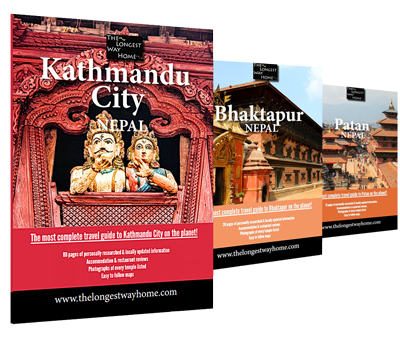Nepal's economy
Nepal's economy is doing better in 2019 than it has in years. There was a turnaround following the 2015 earthquake along with a substantial amount of donation aid, undisclosed loans, and overseas workers returning. Today, there is a worry among financial markets that Nepal's current boom is not sustainable and concerns of rampant corruption hang heavily over the landlocked country. 76% of the workforce is employed in agriculture. Though a lot of that percentage is relegated to working for sustenance rather than profit or export. Only 31% of Nepal's income is derived from Agriculture.

Most agricultural produce is rice, corn, sugarcane, tea, dairy, and buffalo. Skilled agricultural labor is still lacking in Nepal.
Tourism is Nepal's biggest earner within the service industry which, as a total, provides 49% of the country's income.
Nepal imports precious metals, machinery, petroleum, and electricity. Most of which comes from India. Though China is becoming increasingly involved in trying to provide cheaper imports into Nepal along with giving undisclosed loans to the country.
The per-capita income in Nepal is around $1,000. There is no social welfare system to speak of in Nepal.
Most foreigners working in Nepal are either self-employed or are hired by foreign aid companies or foreign private companies.
Immigrating & living in Nepal
The idea of immigrating and living in Nepal appeals to many people. Particularly those who like the great outdoors and simple living in a temperate climate. However, unless you are from India or China, this can be quite difficult to achieve legally.
Tourist visas are quite easily available for many people though in 2019 the cost increased with the extension of tourist visas fees becoming some of the most expensive in the developing world. Business visas for non-Indian or non-Chinese are also obtainable but the hidden costs of lawyers and months of paperwork along with regulations make them more difficult than they first seem. Chinese Business visas since 2015 have been extremely easy to achieve mainly thanks to untraceable business in China. If you marry a Nepalese citizen, you may also be granted a spousal residence. Non-degree student visas have also risen in price and when coupled with school fees are high. After that, there's little else a foreign national can achieve in Nepal in terms of long-term stays.
In all cases, as a foreign national, you will have no voting rights and no rights to own land. Your spouse, however, may own the land via your money. As such, many foreign nationals simply live in Nepal until their work visa expires or via marriage.
One huge issue in Nepal is the difference in culture both before and after marriage. Many non-national women dating Nepalese men are shocked at the different attitude and role they play once they get married. Traditionally, a woman's place is in the home and this can be expected as soon as a marriage takes place.
A lack of healthcare or social welfare systems also have to be taken into account if considering a permanent stay in Nepal. Medical institutions are lacking in modern equipment and resources unless you opt for private healthcare which can be costly.
There's also the reality of living in a country that lacks regular electricity and water. It's not uncommon to go days without having either clean water in Kathmandu or electricity outside Kathmandu in rural areas. With high pollution levels, this basic need in other countries can be difficult to adjust to in Nepal after a prolonged period.
Finally, there's a social impact and diverse culture shock of living long-term in Nepal. Many people are enchanted by short stays and holidays in Nepal but the reality of tourism vs. living in Nepal are quite different. The expat communities do exist but are very small in comparison to other countries. Social isolation is a reality.
Careful consideration needs to be taken before making a permanent move to Nepal.
Jobs & working in Nepal
As previously written, Nepal's economy is on the rise yet the mentality in Nepal is that there is no money available to most. Unemployment is high and regular jobs do not pay all that well for most foreigners' needs, e.g., additional health care, sanitary needs, etc.
Skilled foreigners may find it easier to obtain employment in Nepal by applying for jobs in foreign companies working in Nepal, e.g., engineering companies.
There are several start-ups in Nepal hiring foreigners but again, the long-term prospects are limited as the investors are largely funded by overseas workers or via family wealth.
Enterprising people with money to invest will find working visas easy to obtain. You'll also have no end of Nepalese people offering to help you get started. However, owning a business yourself within Nepal cannot legally happen. Your business needs to be registered outside of Nepal unless you want to own a minority of the business or be a silent partner.
All in all, it's not uncommon to hear success stories from foreigners "living in Nepal" only to never hear from them again after a year or two.
Do read this article about doing business in Nepal as a foreigner.
There are issues concerning the setting up NGO's in Nepal for profit making. NGO's are often exempt from tax and several duties. This has led to many people using them as fronts to generate profits. Adoption homes selling Nepalese carpets as an example.
Digital Nomads or Remote Working in Nepal
Working remotely in Nepal does happen. However, it is important to note a few things. Without a business visa, it is technically illegal. This does not stop many from trying. However, Nepal's internet infrastructure eventually hampers most. A higher than average tourist visa cost also discourages people. Equally so, Nepal is not as cheap compared to many other popular "remote working" destinations.
Due to many tourists working with a tourist visa there is also a rise in "reporting" foreigners in Nepal with many claiming rewards for doing so.
Volunteering in Nepal
Volunteering is very popular in Nepal. However, there are many pitfalls people fall into. Firstly, there is the issue of NGO's that are simply not run very well. Either by way of a lack of skill in the world of development or due to more dubious activities.
Many volunteer positions are "pay only". Meaning you have to pay for volunteering. More often than not, you pay a foreign voluntary organization for your placement. This covers lodging, food, and expenses. All of which are a great deal higher than the real costs on the ground.
Other well-meaning voluntary organizations accept an incredible amount of short-term volunteers. Sadly, there is not very much that can be done in two weeks or even two months other than for the volunteer to get a feel-good factor. This lack of sustainable development has damaged many communities and led to a hand-out mentality amongst locals.
If someone was to volunteer in Nepal then choosing an organization with long-term sustainable development goals and methodologies is essential. Unfortunately, the lack of regulation of NGO's and voluntary organizations in Nepal means it is hard to find legitimate organizations working to international standards.
Do check out the following recognized organizations if you are genuinely ready to make a sustainable commitment to volunteering in Nepal:
- UNHCR (global)
- VSO (global)
- Peace Corps (USA)
Study in Nepal
While academic study in Nepal is possible it wouldn't be the first choice for many. Foreigners living in Nepal with children often avail of international schools in and around Kathmandu.
Most other forms of study fall into the tourism sectors of language, meditation/yoga, and the arts. There are also several cooking classes opening up though nothing like set classes. It's more like being shown by a Nepalese mother how to cook.
Language lessons in Nepal:
Nepalese is a fairly easy language to learn. Simply walking around Kathmandu is enough to see several signs offering classes. Many "schools" offer 1-2 week courses from USD$60-120.
Do take care to vet your language school well. Quite often they haven't been running long and you may end up being taught alone from newspaper clippings rather than from a set course.
For long-term language students, you could also check out Tribhuvan University, Kirtipur, Kathmandu, Nepal. Tel: (977-1) 4331969.
Check out this article on learning the Nepalese language for travel.
Meditation & yoga courses in Nepal:
One of the more popular courses to take in Nepal are to do with meditation and yoga. There are again plenty of signs around Kathmandu and Pokhara offering both. It's well advised to have an understanding of meditation or yoga before signing up to anything.
There are plenty of disreputable organizations set around so know about these subjects and interview several centers before agreeing to anything.
Learning the arts in Nepal:
From thankas to pottery or weaving Nepal is well known for its traditional handicrafts. While Kathmandu offers a lot of courses, its well advised to take a trip to Bhaktapur if you are looking for extended courses in these areas.
Bhaktapur has a rich history of traditional handicrafts which continues on today. It's a pleasant city to spend a week or two in and will probably cost less than a course in Kathmandu!
For more, check out this guide to Bhaktapur Nepal.
Download my guidebooks to Nepal
Liked this page? You'll love my books! They are hands on guidebooks that are better than the rest. Yes, really! In them I cover all attractions with step-by-step accuracy using well researched information, photographs and travel tested walking tours.
Available in print or digital editions - the best guidebooks for visiting Nepal.
Was this page helpful to you? If so please tell others!



















